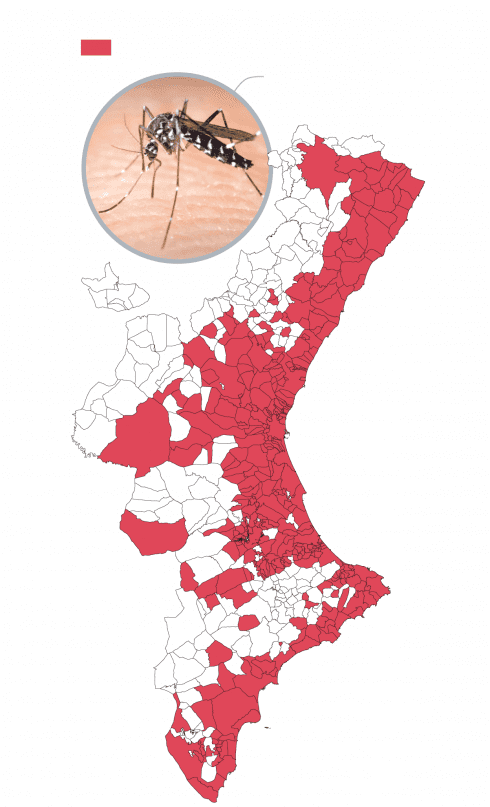TIGER mosquitoes are have now colonised two-thirds of the Valencian Community, as experts blame climate change and transportation for the spread.
Between March 2018 and May 2019, the south-east Asian insects expanded to 30 more municipalities to claim 335 of Valencia’s total of 542.
The tiger mosquito, Aedes albopictus, needs temperatures above 14 degrees to survive, and establishes itself between June and October in Spain.
“We are still in a period of expansion, and we expect a presence in regions of Alicante close to the coast,” said Ricardo Jimenez, professor of plague control at the University of Valencia, told Las Provincias.
Jimenez added that the blame lies with climate change, but also with travel and transportation.
The AP-7 motorway in particular has been named as a vector in the mosquito’s spread.
Experts told Las Provincias that larvae could have been transported in ‘damp spare tyres’ or ‘plant pots’ all across the Valencian Community.

The tiger mosquito is responsible for the transmission of viral diseases dengue, chikungunya and zika.
Just last month three Icelandic tourists were believed to have contracted chikungunya while in Alicante – but the diagnosis thankfully was proven false.
In the last year, however, the Valencian Community has seen one case of zika and 12 cases of dengue.
The viruses are spread after a tiger mosquito bites a person already infected, and who has usually travelled from a tropical region where the disease is more widespread.
The Valencian regional Ministry of Health has now allocated €400,000 for municipalities to help stop the mosquito’s spread.
Control measures include fumigation, particularly in damp areas like drains and sewers.

Jimenez added that in northern Italy, the release of 100,000 sterilised male mosquitoes per week had managed to reduce the population by 70% in a former study.
Click here to read more Spain News from The Olive Press.








